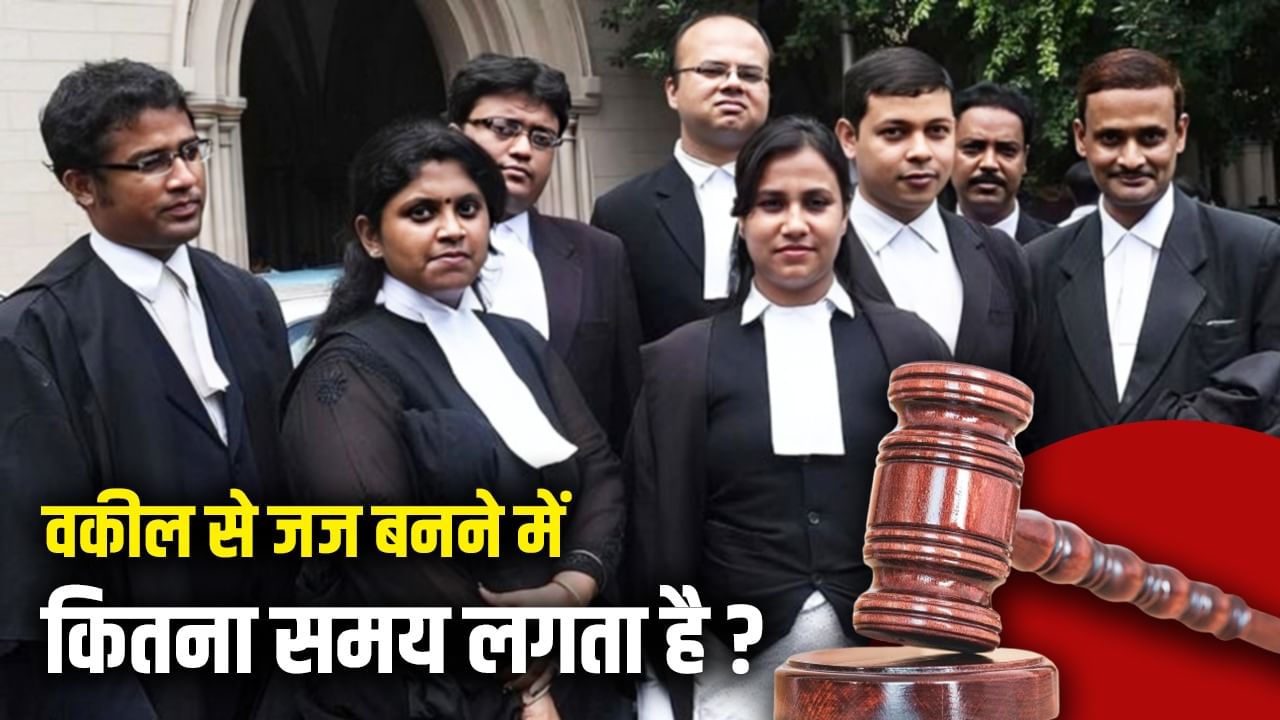With the recommendation of the Supreme Court College, the way for the appointment of High Court judges in many states has been cleared.
The Supreme Court Collegium has approved the recommendation of appointment of new judges in many High Courts of the country. Through this, the way has been cleared for the appointment of judges in the high court of many other states including Telangana, Madhya Pradesh and Rajasthan along with three judges of Delhi High Court, 10 judges of Punjab-Haryana High Court.
Earlier, on July 1 and 2, the collegium met under the chairmanship of the Chief Justice, after which the recommendation of appointment of judges has been approved. Let us know what is the rule to make lawyers a judge?
How do judges become?
To become a District Judicial Magistrate in India, one has to pass the judicial service examination. Before this, the degree holders have to practice at least three years. Then after passing the exam, one has to work as District Judicial Magistrate for three years. After this, a candidate is entitled to appointment as a district judge. Applications can also be made to become a judge in the High Court and Supreme Court if the experience increases. In these, the appointments of judges are made from the collegium system.
Such judges are appointed in the High Court
The Chief Justice and Judges in the High Courts of the country are appointed under Article 217 (1) of the Constitution. According to Supreme Court advocate Ashwini Kumar Dubey, according to Article 217 of the Constitution, a person should be a citizen of India to be appointed as a judge in a High Court. With this, he should have been an advocate in the High Court for at least 10 years. The proposal for the appointment of a judge in the High Court is sent to the Chief Minister and the Governor on behalf of the Chief Justice. Its copies are also sent to the Chief Justice of the Supreme Court and the Ministry of Central Law, Justice and Company Affairs. After considering the proposal by the Ministry of Central Law, Justice and Company Affairs, it is sent to the Chief Justice of the Supreme Court for his advice.

The Chief Justice of India consider the name of the proposed person on the advice of the collegium of two senior judges of the Supreme Court. After this, within four weeks, the Chief Justice of the Supreme Court send his recommendation to the Ministry of Central Law, Justice and Company Affairs. From there, the recommendation of the Chief Justice is sent to the Prime Minister within three weeks, who advise the President in the matter of appointment. Further process is completed on the approval of appointment by the President. Similarly, the Chief Justice of the High Court is also appointed by the President on the advice of the Governor and the recommendation of the collegium.
This is the qualification of appointment in Supreme Court
Similarly, the Presidents are appointed as the Supreme Court judges under Article 124 (2). He is obliged to consult the Chief Justice of India in the appointment of other judges of the Supreme Court. However, he is not obliged to consult anyone for the appointment of the Chief Justice of India. In Article 124 (3) of the Constitution, the qualifications of the judges of the Supreme Court have been told that they should be a citizen of India. LLB/LLM degree should be with him. In addition to the judge who has worked in the High Court for at least five years, lawyers who have practiced for 10 years in the High Court are also eligible for this.

Supreme Court.
The recommendation is sent like this
In the Supreme Court, when the judge is vacant, he sends the recommendation of the name of the collegium judge led by the Chief Justice to fill it. In the recommendation sent to the Union Law, Justice and Company Affairs Minister, the Chief Justice of the country and four senior most judges are done on the advice of the collegium.
If the next Chief Justice of the country is not one of the four senior most judges, then they are also made part of the collegium, because they should also have a hand in the selection of judges. Because these judges will also work during his tenure as the next Chief Justice.
This is how appointment
After receiving the final recommendation of the collegium from the Chief Justice of India, the Union Minister of Law, Justice and Company Affairs send his recommendations to the Prime Minister. Then the Prime Minister advises the President in this matter. As soon as the President approves the appointment, the Chief Justice of India is informed by the Secretary of the Government of India in the Department of Justice. A letter of appointment of judges is issued by the President and the warrant of appointment is signed by the President. After this, the necessary notification is issued in the Gazette of India.
Also read: How much powerful military cargo aircraft carrying fighter jet-tank? Discussion of taking F-35 standing in Kerala into pieces
